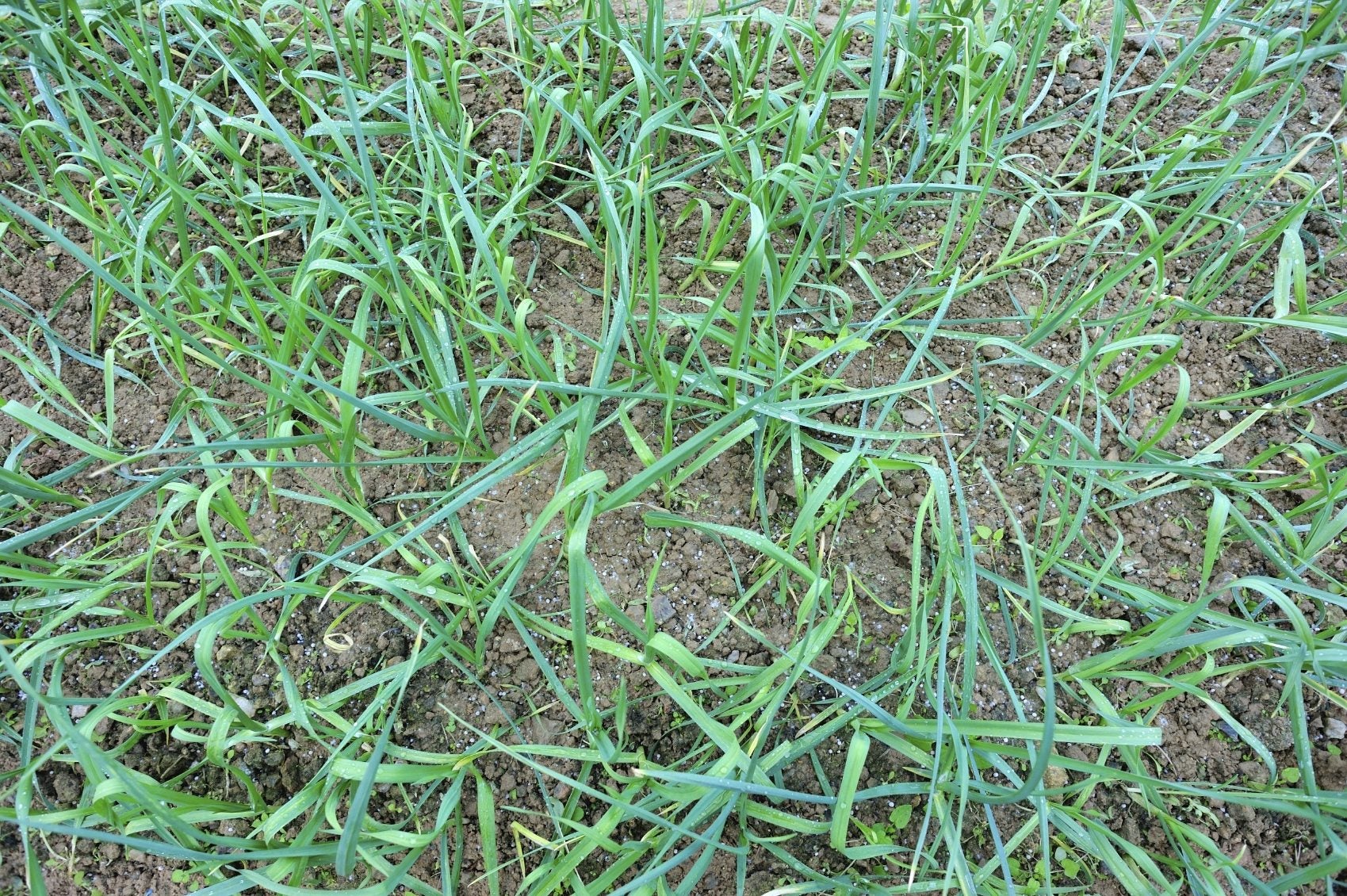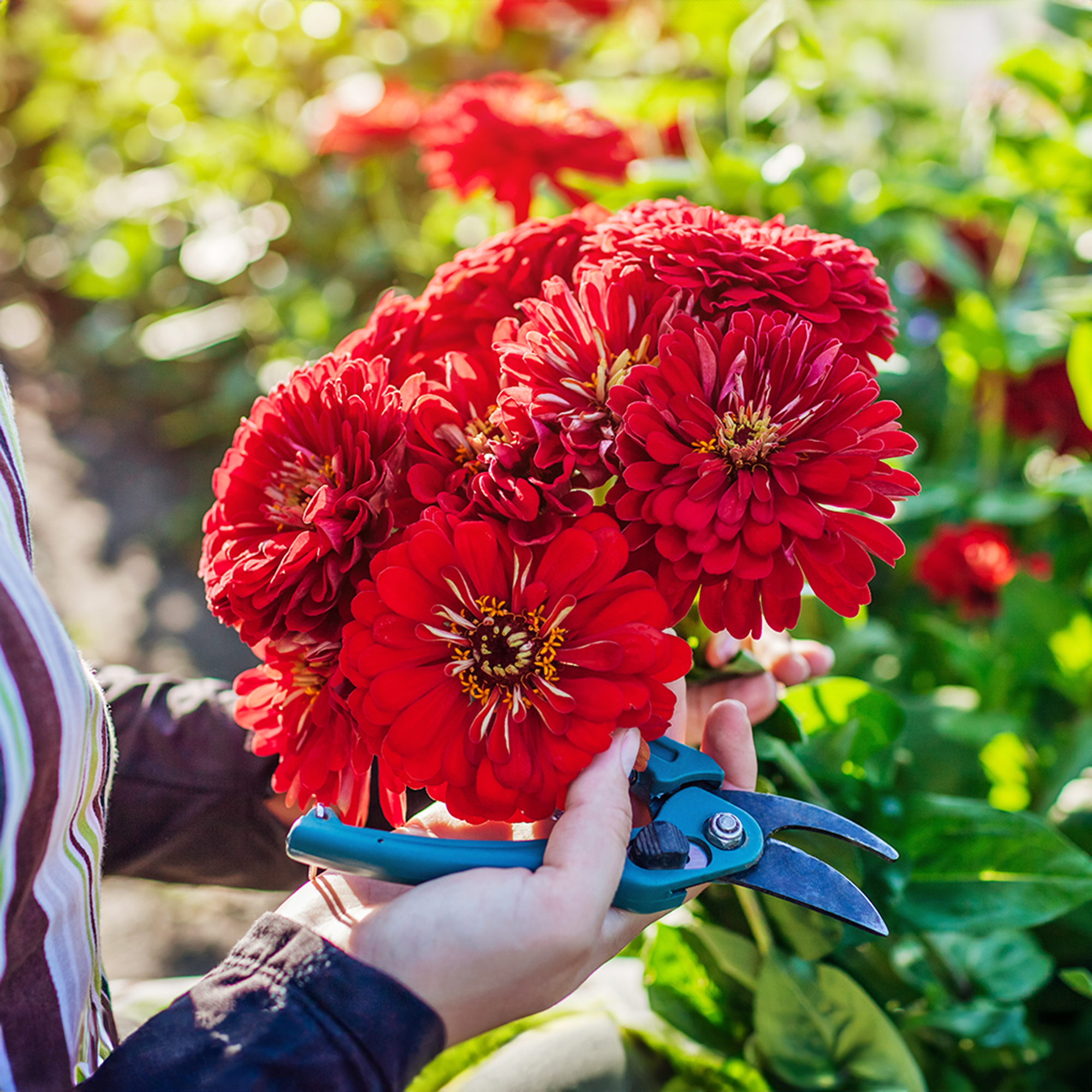My Garlic Fell Over - How To Fix Drooping Garlic Plants

Garlic is a plant that requires some patience. It takes around 240 days to mature and it's worth every second. In our household there really is no such thing as too much garlic! During the course of those 240 days, any number of pests, diseases, and weather conditions can affect the garlic crop. One such crisis occurs when garlic is falling over. So, how to fix drooping garlic? Read on to learn more.
Help, My Garlic Fell Over!
First things first. I'm stating the obvious for most garlic growers, but here goes. When garlic is reaching maturation, the leaves begin to sag and brown. You end up with garlic plants drooping. If you do a quick math calculation to figure out how many months it has been since you planted the garlic, you may just realize that it's nearing harvest time. If you're still in doubt and your memory is like mine (that is like a sieve), simply pull up one of droopy plants. If the bulb is large and ready, there's no need to wait for full dieback, but leave the foliage on to dry naturally. This extends the garlic's storage time. If the bulb is ready, then there's no further need for troubleshooting floppy garlic. If, however, the garlic is falling over and readiness isn't a factor, it's time to look further for another possible cause.
Troubleshooting Floppy Garlic
How to fix drooping garlic depends on what other problems may be affecting the plants.
Moisture issues
Another reason for a drooping garlic plant is the most common reason for drooping in any plant-- lack of water. Garlic requires consistently moist soil. Water the plants with 2 inches (5 cm.) of water at least two times a week. Conversely, too much water can also affect the garlic, resulting in garlic that is falling over. Sometimes during heavy rainstorms, your garlic may get beaten down by the force of the storm. Don't worry; it's likely that the garlic will bounce back as it dries.
Nutrient problems
Yet another reason for drooping garlic plants may be that they are hungry. Lack of nitrogen, potassium, calcium, and magnesium will affect the growth of the plants. You can bring them around by doing a foliar feed or root zone feeding.
Insect pests
A more dire possibility may be that the garlic has become the host for onion root maggot or wireworms. Although garlic is a hardy veggie, it's also prone to any number of insect infestations and fungal diseases, not to mention the above soil deficiencies.
Poor location
Perhaps you have planted your garlic in the wrong spot. Garlic needs at least six hours of sun in quick draining soil, rich with nutrients. Maybe you should try replanting the garlic. Prepare a new site for it if you think the wilt is caused by poor soil or if the plants are in too shady of an area. Amend the soil in a sunny area with equal parts of organic compost and well-draining soil. Dig 3 inches (8 cm.) of this into the top 3 inches (8 cm.) of soil in the new site. Dig the garlic up and transfer them in the morning of a cool day. Feed the garlic with a side dressing of nitrogen fertilizer. Dig this into the top inch (2.5 cm.) of soil around each plant and water the plants immediately thereafter. Spread 2 to 3 inches (5-8 cm.) of organic mulch around the plants to maintain warmth and moisture. Hopefully, all this will perk up the garlic and you will no longer need to say, “Help, my garlic fell over!”
Gardening tips, videos, info and more delivered right to your inbox!
Sign up for the Gardening Know How newsletter today and receive a free copy of our e-book "How to Grow Delicious Tomatoes".

Amy Grant has been gardening for 30 years and writing for 15. A professional chef and caterer, Amy's area of expertise is culinary gardening.
-
 Zinnias On Repeat: 10 Glorious Cut-And-Come-Again Varieties For Endless Summer Bouquets
Zinnias On Repeat: 10 Glorious Cut-And-Come-Again Varieties For Endless Summer BouquetsThese zinnia varieties keep giving all summer, making them the perfect choice for dedicated cutting gardens – or just the occasional homegrown bouquet.
By Ellen Wells
-
 Create A Romantic Garden Straight Out Of Bridgerton: Regency Era Romance In Your Garden
Create A Romantic Garden Straight Out Of Bridgerton: Regency Era Romance In Your GardenTry some romantic garden ideas straight out of Bridgerton. Flowers and gardens in the Regency era were lush and charming and you can get the same look!
By Bonnie L. Grant